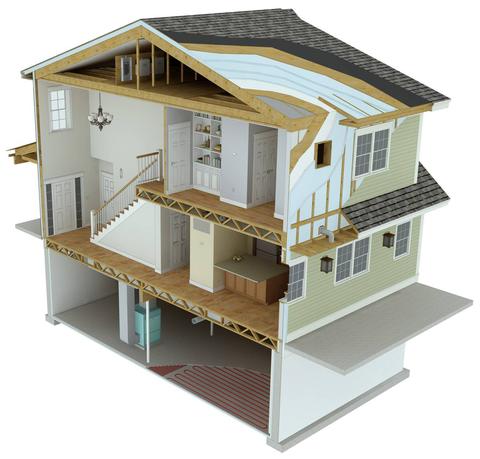The National Institute of Standards and Technology is hosting a workshop on September 14, 2011, to provide a vision and guidance for what would be necessary to construct a net-zero energy residential building in the United States. Achieving this vision will require taking an essential first step to identify the elements to include in a framework document and the barriers, gaps and needs for developing these elements.

Unlike many other parts of the world, where regulations are mandated from the top down, model codes and standards development in the U.S. is a "grassroots" effort, generally requiring consensus from many diverse construction community stakeholders. Building code adoption, administration and enforcement are at the state and local level, where diminishing budgets have hampered the consideration of more than the essential health and safety mandates. Training and guidance to better inform all sectors and levels of stakeholders are necessary to move residential building design, construction and operation to the net-zero energy goal.
The NIST Measurement Science Roadmap for Net Zero Energy Buildings Workshop Report (NIST TN 1660 – March 2010) identified a number of broad challenges to achieving net-zero energy, high performance green building technologies. This workshop will build on the technology and behavioral challenges identified with a goal of creating a guidance framework document for net-zero energy residential buildings and a roadmap for appropriate tools and incentives to circulate, communicate, and promote these resource efficient technologies on a nationwide scale.
Prior efforts in the residential sector have focused on very tight residential buildings with large amounts of insulation, passive solar techniques, and reliable ventilation. Trained architects, builders and building tradesmen, and a pathway to additional energy efficiency through building operation and maintenance have been lacking. The finance, insurance and surety communities have had limited engagement. Voluntary programs, such as utility and green building efforts and product/equipment ratings, have raised public awareness and can provide data and experience for a more structured whole building approach.
The Workshop will propose the critical elements and define the program parameters necessary to develop a framework document for net-zero energy homes. Outreach for participants will include previous NIST NZEB Workshop participants as well as SDOs and stakeholders currently involved in the energy efficient residential building design.
Your contribution is important! As a participant in this workshop, you will be contributing to the development of a valuable framework document that can be used to circulate, communicate, and promote these resource efficient technologies on a nationwide scale
1 Energy Consumption by Sector and Source, Annual Energy Outlook 2011, U.S. Energy Information Administration
Hilton
620 Perry Parkway
Gaithersburg. MD 20877
(301) 977-8900
Ref: NIST-Net Zero
Room Rate: $139 + tax
This rate includes a full hot breakfast

